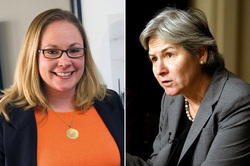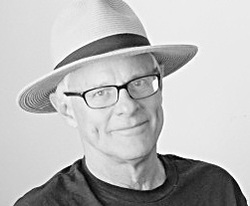 Jim Messina Jim Messina
According to a Politico article by Kenneth Vogel and Maggie Habberman yet another Obama guy is reaching into the financial honey pot to extract gobs of financial goodies. By now no one should surprised by the crassness of this sort of transition including the creepy exploitation of “organizing” language for its polar opposite – top down messaging.
Viewed through the lens of broad based community organizing the Obama political enterprise has advanced the cause of democratic practice not at all. In fact the utilitarian bias present in his youthful decision to leave after a brief fling with organizing work in Chicago blossomed inside of a mechanized political apparatus embodied by men like Jim Messina. Sadly from my point of view, the man once attacked by his political enemies as the Community Organizer in Chief has turned his back on precisely the kind of local inquiry, debate, discussion, and action that lies at the heart of the broad based community organizing enterprise. As a result there has been a cascade of negative consequences including a severed relationship with ordinary people, a gaping power vacuum into which the early Tea Party stepped and a deepening divide between Washington, DC politics and everybody else. It could have turned out differently. Maybe it still could. Imagine what real attention at the highest levels of government to grassroots interests, innovations and accomplishments might achieve.
0 Comments
 Rebecca Tallent and Esther Olavarria Rebecca Tallent and Esther Olavarria
News from the comprehensive immigration reform front isn’t good. In fact, it’s downright ugly if Capitol Hill is the front and winning federal reform now is the objective. When the curtain drops on the tawdry drama of the 2014 congressional session it’s high probable CIR will put a big fat zero on the legislative scoreboard despite the optimism engendered by the appointments of Hill staffers Tallent and Olavarria. Reformers will be fortunate if they don’t go backward with some double down on an enforcement strategy that is as expensive as it is futile.
If the annual congressional failure is in fact consummated, no doubt there will be calls for a changing of the guard in foundation funded immigration reform leadership. Already Politico reports on a split between wings of the movement with those staying the course behind President Obama (and prized White House meetings) on the one hand and those like the National Day Laborer Organizing Network and Bishop Minerva Carcano calling for an executive order to end the detention/deportation savagery on the other. So far, it turns out that getting quoted in the New York Times and Politico hasn’t made a hell of a lot of difference either way. Out with the leader losers will likely be the cry. Get some people in there who know how to organize. Obviously the mega messaging, bizillion emailing, Twitter emitting reform pontificate has botched the job. Maybe they had it planned this way all along to save their issue and preserve their jobs in perpetuity or at least as long as the patience of their patrons holds out. Maybe it was all just sound and fury designed to bolster Democratic politicians. Baloney! The real problem lies with the kind of organizing happening at the grass roots. Mostly it’s short on patient, careful power analysis, constituency building, and targeted action. Still, opportunity knocks. The slow death of reform in 2014 could prove a wake up call for course correction in 2015 and beyond. Going deep and going local is where the issue ultimately will be moved. That will give the DC based single-issue mavens something with which to bang the reform drum harder and tougher. In fact, the inside the beltway reformers have performed about as well as could be expected. Occasionally even venturing out into the real world inhabited by desperate immigrant families, struggling businesses and immigrant integrating states. If the big money behind immigration reform – old line foundations, newbie high tech firms and a few mega rich individuals – decide to invest in deep local organizing, within a year the political calculus would swing sharply in the direction of reformers and real comprehensive reform would get done. |
Frank C. Pierson, Jr.Frank Pierson retired after forty years of work with the Industrial Areas Foundation (IAF) as a professional organizer. He began his career in 1971 in Chicago, moved to Queens, New York City and migrated west to work in Arizona, New Mexico, Nevada and Colorado. He resides with his wife, Mary Ellen Kazda, in Oracle, Arizona. He may be reached at [email protected] Archives
June 2018
|


 RSS Feed
RSS Feed
